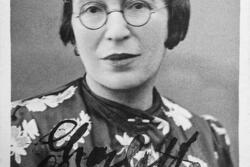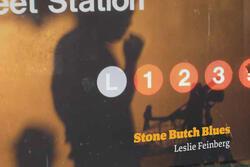A Young Liberal Feminist’s Post-election Message to Her Peers
I stopped checking after 9:00 pm. It was around 5:00 pm, however, when I knew. A sense of foreboding had crept over me. When I finally woke up the following morning, I had no expectation of being surprised. I did not feel disappointed, but rather, empty. Something about the results seemed all too inevitable.
Nothing felt real. Donald Trump was just elected president. My mind had been frantically flitting about for months, imagining the apocalyptic scenarios that would ensue if Trump won the presidency. I asked myself, What will become of abortion? What about transgender rights? Who will care about our climate? Will gun laws ever pass? At the same time, I nourished a gentle hope, telling myself that she had a chance. I even fed myself a fantasy of my unbreakable resilience if he became president again, telling myself that I would fight back.
When he won, all my thoughts ceased. A crushing sense of doom shattered my optimism as my shame labeled my previous hopes as utter naivety. Yet, I did not swiftly succumb to a torrent of anxious pessimisms. Instead, I was simply unable to comprehend the reality that lay before me.
Over the next few days, I slowly returned to the frightful futures that seemed all that much closer to reality. There will be no one to check his power, I thought. There will be no one to protect our rights. With these concerns festering in my consciousness, I received the assignment to write this blog post. At first, I didn’t know where to start. But then, I understood that this is exactly what I needed.
I began a deep dive into the depths of JWA archives and stumbled upon Charlotte Charlaque. According to her encyclopedia entry, born in 1892, Charlaque “was a German-American, actress, translator, teacher, singer, dancer, violinist, and receptionist at Magnus Hirschfeld’s Institute of Sexual Science in Berlin.” She also happened to be one of the first transgender women to receive gender-affirming care—and she was Jewish. Throughout her life, she was an active participant and social servant in the multitude of thriving queer communities that she was a part of.
Despite the rise of the Nazi party, Charlaque received gender-affirming surgery in the early 1930s. In 1933, the Nazis destroyed the Institute and its vast resources for queer people. Before moving back to New York in 1942, Charlaque bounced around Europe, trying to escape the Nazis while she hid her dual queer and Jewish identities. At the same time, Charlaque continued to be an active member of the Jewish community as she tutored Jewish refugees in various languages. Charlaque also sustained correspondence with her lover, Toni Ebel, who was transgender as well.
Charlaque lived through perhaps one of the most horrific periods in world history as a Jew AND as a transgender woman, AND she survived. Though her identities subjected her to unthinkable oppression, she continued to teach, serve, and love her people as herself.
Right now, a Trump presidency seems rather distant. I continue to think about the ways in which my life—as someone who lives in a blue state in relative comfort with a lovely family—may or may not be affected. I am a woman. I am Jewish. I am queer. I fear for my own future and rights as well as the future and rights of my friends and family. Will I and all the women I know and love always have access to a safe abortion? Will my beloved cousin ever be able to receive gender affirming care? I can’t answer these questions. At this point, it is not worth the speculation. We don’t know what the next four (plus) years have in store. However, I do know that we will keep fighting and we will keep surviving. The inspirational and triumphant story of Charlotte Charlaque is enough to convince me of this.
I also know that this effort takes work. In a 1955 article, Charlaque argued that trans people have existed across history. While it is easy to be discouraged by a lack of progress and acceptance, we must remember our obligation to carry on the fight that began long before us.
I call out to you, my community of beautiful women, Jews, and queers, and I proclaim this truth: we are real and we do exist and we have been doing this for millennia. Therefore, I beg you to defend our tried and tested tradition of unapologetic survival. As hard as it can sometimes seem, we just need to keep going.
This piece was written as part of JWA’s Rising Voices Fellowship.







